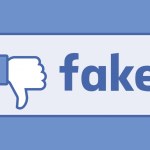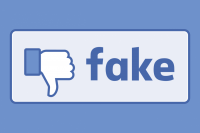Google Maps Guidelines Aim To Keep Fake Listings Off Web
Google Maps Guidelines Aim To Keep Fake Listings Off Web
by Laurie Sullivan, Staff Writer @lauriesullivan, April 7, 2017

Do you remember when Bryan Seely, a Microsoft engineer at the time, demonstrated the ease of using the Internet’s open architecture to record phone conversations of unknown callers to the FBI Secret Service? He did it to bring to light one vulnerability in Google Maps.
Seely built fake locations in Google Maps with Google’s Map Maker tool, which no long exists, and then switched to Google Places. That occurred in 2014. This, to me, signaled the coming of fake news.
Despite Seely’s “demonstration,” a Google research paper shows that less than 0.5% of local searches lead to fake listing, and the company says it has reduced the number of fake listings by 70% from its peak in 2015. It has been able to detect and disable 85% of fake listings before they even appear on Google Maps.
A recently published research paper, Pinning Down Abuse on Google Maps, explores what researchers call “a form of black hat search engine optimization where miscreants overcome a service’s verification steps to register fraudulent localized listings.”
The listings attempt to “siphon” organic search traffic from legitimate businesses and funnel it to profit-generating scams. For the paper, researchers analyzed more than 100,000 business listings that appeared on Google Maps between June 1, 2014 and September 30, 2015.
In a related blog post, co-authors Doug Grundman, Maps Anti-Abuse, and Kurt Thomas, Security & Anti-Abuse Research at Google, wrote: “Bad actors posing as locksmiths, plumbers, electricians, and other contractors were the most common source of abuse — roughly 2 out of 5 fake listings.”
The thieves operated these fake listings and cycle through nonexistent postal addresses and disposable VoIP phone numbers even as their listings were discovered and disabled, the two explain.
The authors of the post also explain that another 1 in 10 fake listings belonged to real businesses where thieves had improperly claimed ownership, such as hotels and restaurants. The thieves would deceive the business into paying referral fees for organic interest.
As Google notes, verifying the authenticity of information on the Web comes with a lot of unique challenges, and will continue to pilot and launch technology that rids the Web of fake information.
Using the findings from the research, Google made significant changes to its process for verification of addresses. The company said it is also piloting an advanced verification process for locksmiths and plumbers.
MediaPost.com: Search Marketing Daily
(28)













